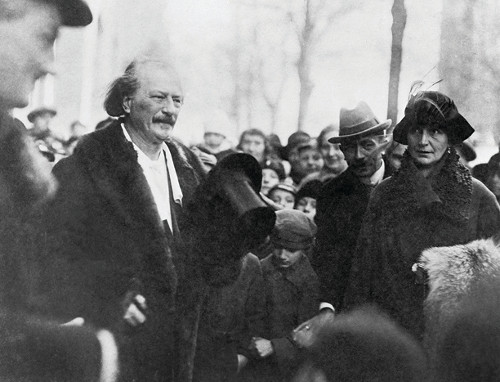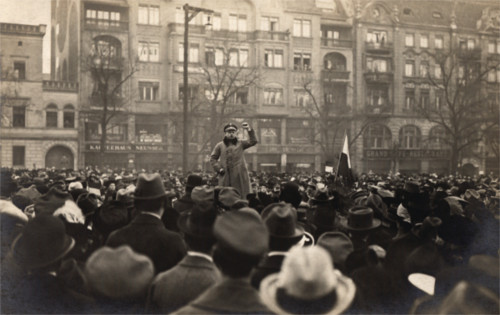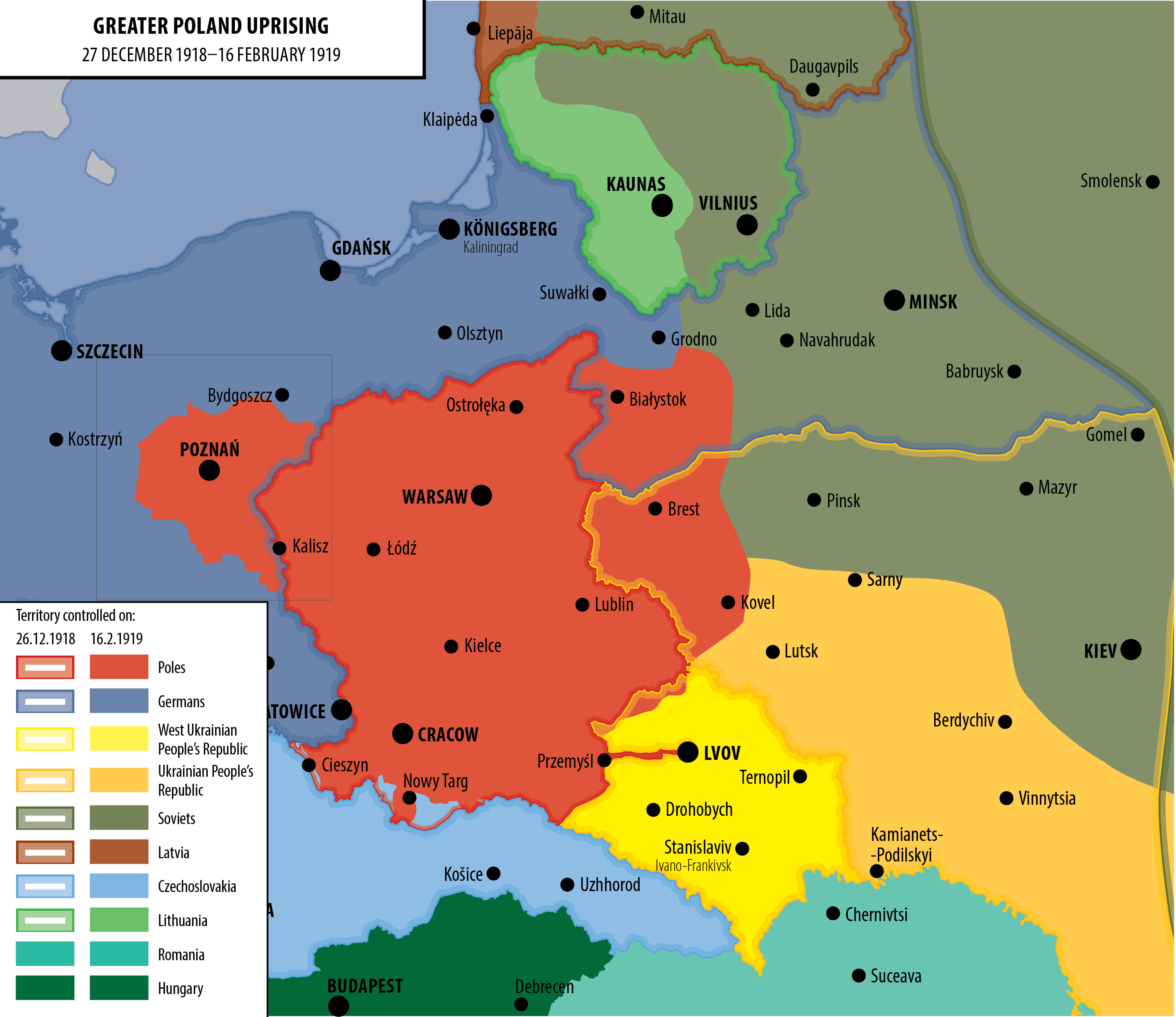
The fact that the Poznań Province remained in Germany met with rapid opposition on the part of the Poles who lived there. Numerous civic, soldiers’, and workers’ organizations were immediately set up. The Poles were trying to take over the law enforcement services. The Catholic and national milieus were the most active. Despite the chaos caused by the revolution, the lost war, and the abdication of Emperor Wilhelm II additional troops were deployed to Greater Poland in response to the Polish milieus’ actions. The spark that triggered the uprising was Jan Paderewski’s arrival in Poznań and the speech he gave on 27 December 1918 at the Bazar Hotel.
The Paderewskis [...] have finally arrived with the English [...] What crowds!! Viva!! Indescribable enthusiasm!! All the lights went out at the railway station and thousands of torches were lit up instead.

